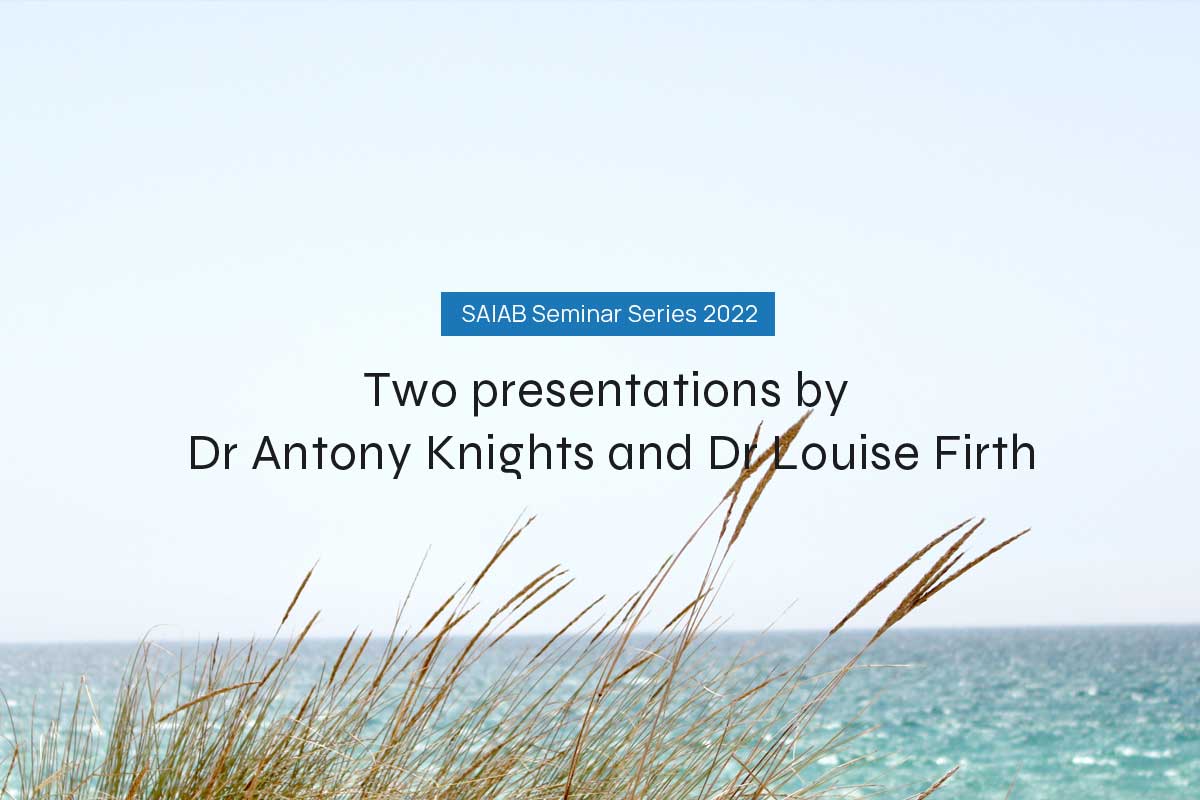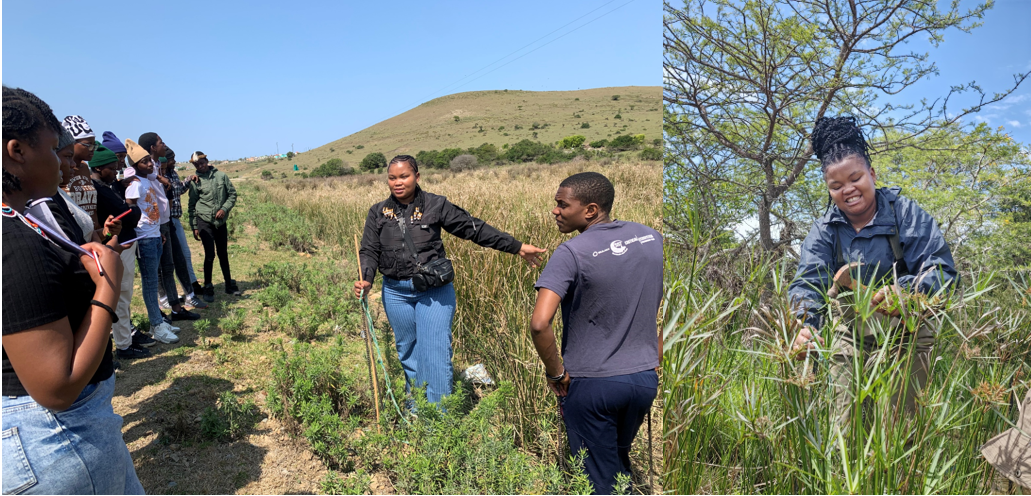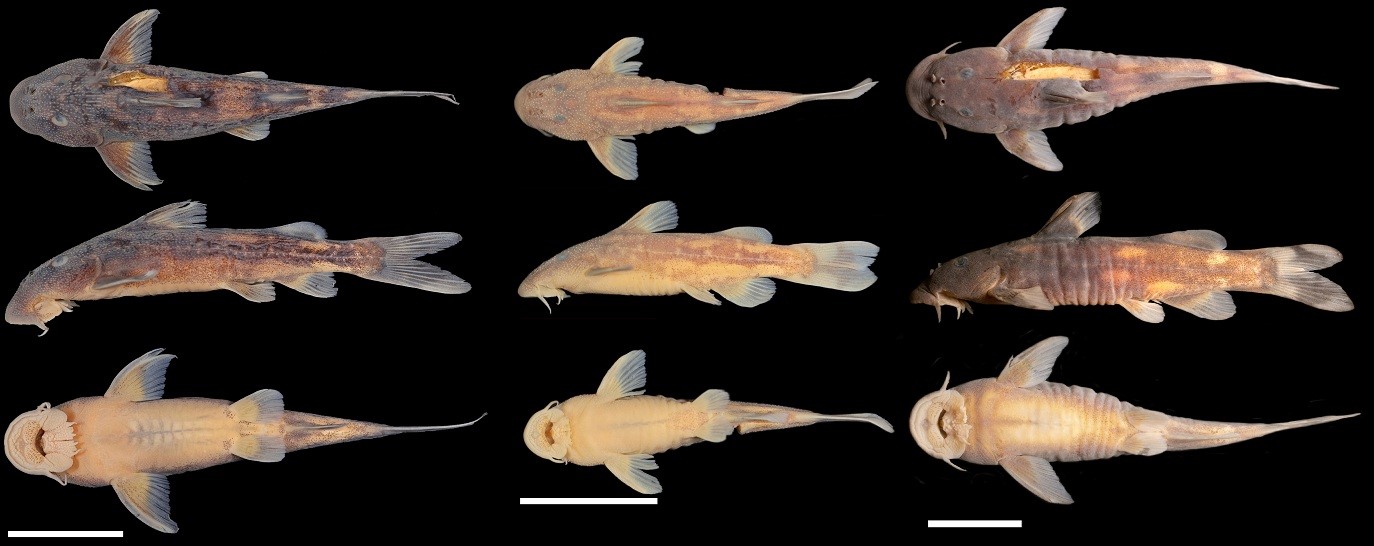Associate Professors of Marine Ecology, School of Biological and Marine Sciences,
University of Plymouth
Friday 22 July, 12.00pm (Johannesburg)
Zoom Registration link: https://bit.ly/3c5ZlMf
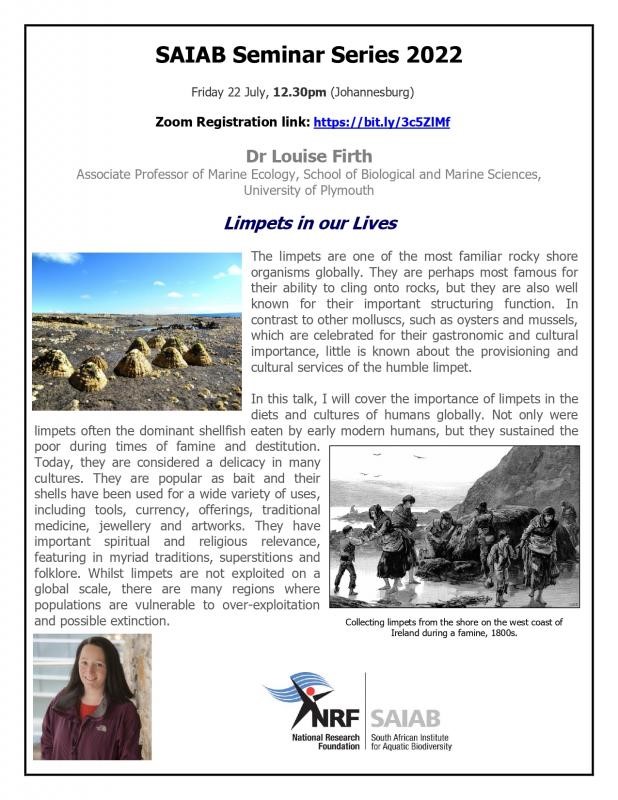
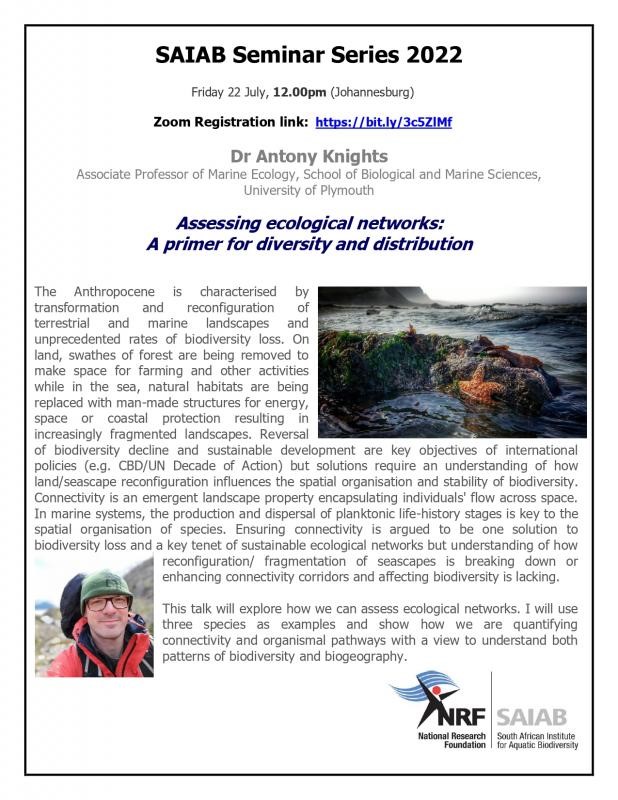
Assessing ecological networks: A primer for diversity and distribution
Presentation by: Dr Antony Knights
Friday 22 July, 12.00pm (Johannesburg)
The Anthropocene is characterised by transformation and reconfiguration of terrestrial and marine landscapes and unprecedented rates of biodiversity loss. On land, swathes of forest are being removed to make space for farming and other activities while in the sea, natural habitats are being replaced with man-made structures for energy, space or coastal protection resulting in increasingly fragmented landscapes. Reversal of biodiversity decline and sustainable development are key objectives of international policies (e.g. CBD/UN Decade of Action) but solutions require an understanding of how land/seascape reconfiguration influences the spatial organisation and stability of biodiversity. Connectivity is an emergent landscape property encapsulating individuals’ flow across space. In marine systems, the production and dispersal of planktonic life-history stages is key to the spatial organisation of species. Ensuring connectivity is argued to be one solution to biodiversity loss and a key tenet of sustainable ecological networks but understanding of how reconfiguration/ fragmentation of seascapes is breaking down or enhancing connectivity corridors and affecting biodiversity is lacking.
This talk will explore how we can assess ecological networks. I will use three species as examples and show how we are quantifying connectivity and organismal pathways with a view to understand both patterns of biodiversity and biogeography.
Limpets in our Lives
Presentation by: Dr Louise Firth
Friday 22 July, 12.30pm (Johannesburg)
The limpets are one of the most familiar rocky shore organisms globally. They are perhaps most famous for their ability to cling onto rocks, but they are also well known for their important structuring function. In contrast to other molluscs, such as oysters and mussels, which are celebrated for their gastronomic and cultural importance, little is known about the provisioning and cultural services of the humble limpet.
In this talk, I will cover the importance of limpets in the diets and cultures of humans globally. Not only were limpets often the dominant shellfish eaten by early modern humans, but they sustained the poor during times of famine and destitution. Today, they are considered a delicacy in many cultures. They are popular as bait and their shells have been used for a wide variety of uses, including tools, currency, offerings, traditional medicine, jewellery and artworks. They have important spiritual and religious relevance, featuring in myriad traditions, superstitions and folklore. Whilst limpets are not exploited on a global scale, there are many regions where populations are vulnerable to over-exploitation and possible extinction.
Register for the two talks using this Zoom link: https://bit.ly/3c5ZlMf
